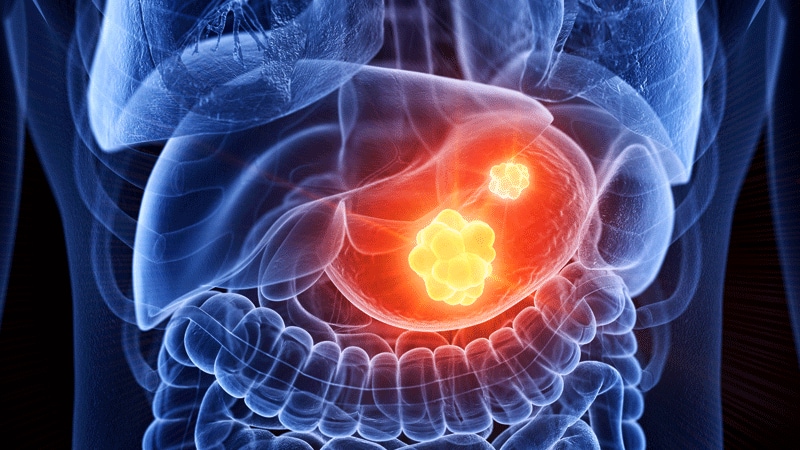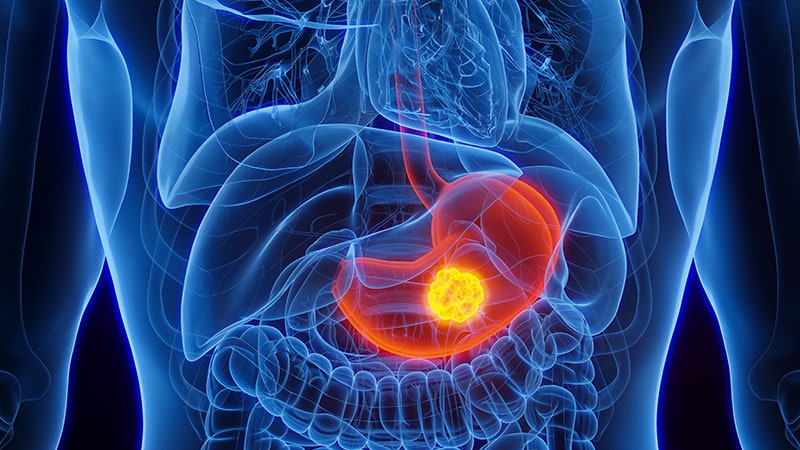Studies have shown increased gastric cancer risk in users of proton pump inhibitors (PPI) and histamine-2 receptor antagonists (H2RA), questioning the safety of gastric acid suppression.
Researchers led by Queen's University Belfast and the University of Aberdeen conducted a case-control study within the Scottish Primary Care Clinical Informatics Unit (PCCIU) database and a cohort study in the UK Biobank.
In PCCIU, five controls were matched to cases diagnosed in 1999-2011, and medications were determined from GP records. In the UK Biobank, medications were self-reported at cohort entry 2006-2010, and gastric cancer was ascertained from cancer registries until 2014.
PCCIU contained 1119 cases and 5394 controls. UK Biobank contained 250 cases in 471,779 participants.
PPI users had a higher gastric cancer risk in PCCIU and UK Biobank when applying a one-year lag (aOR, 1.49; 95% CI, 1.24-1.80; aHR, 1.28; 95% CI, 0.86-1.90, respectively). However, these associations were attenuated when using a two-year lag (aOR ,1.13; 95% CI, 0.91-1.40; aHR ,1.15; 95% CI, 0.73-1.82, respectively).
The authors concluded that there is little consistent evidence of an increased risk for gastric cancer with PPI use. Although using a one-year lag showed an association between PPI and gastric cancer, this association did not follow an exposure response and was attenuated with longer lags suggesting the role of reverse causation.
A similar pattern of association was observed in PCCIU for H2RA, but there was no association in the UK Biobank.


